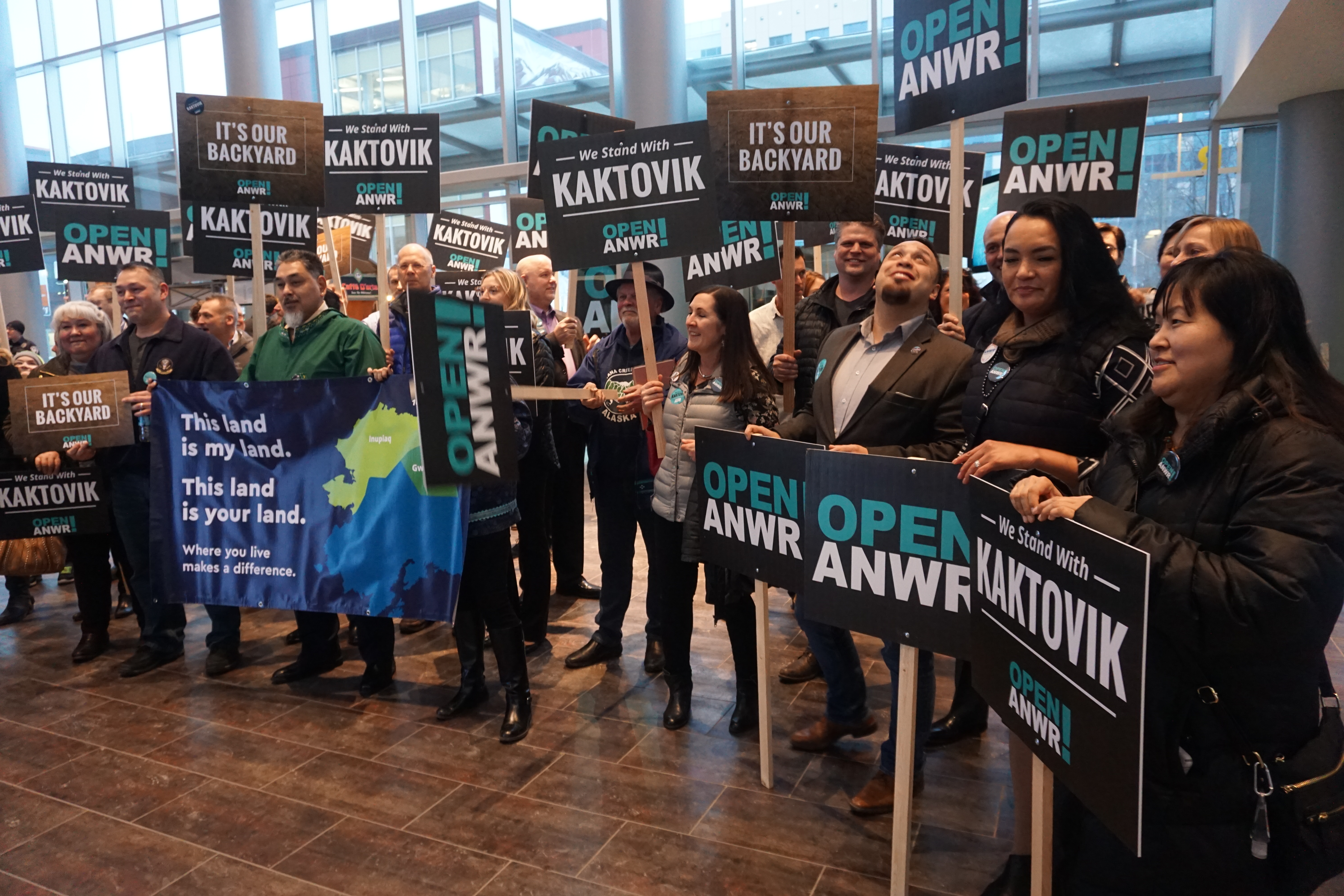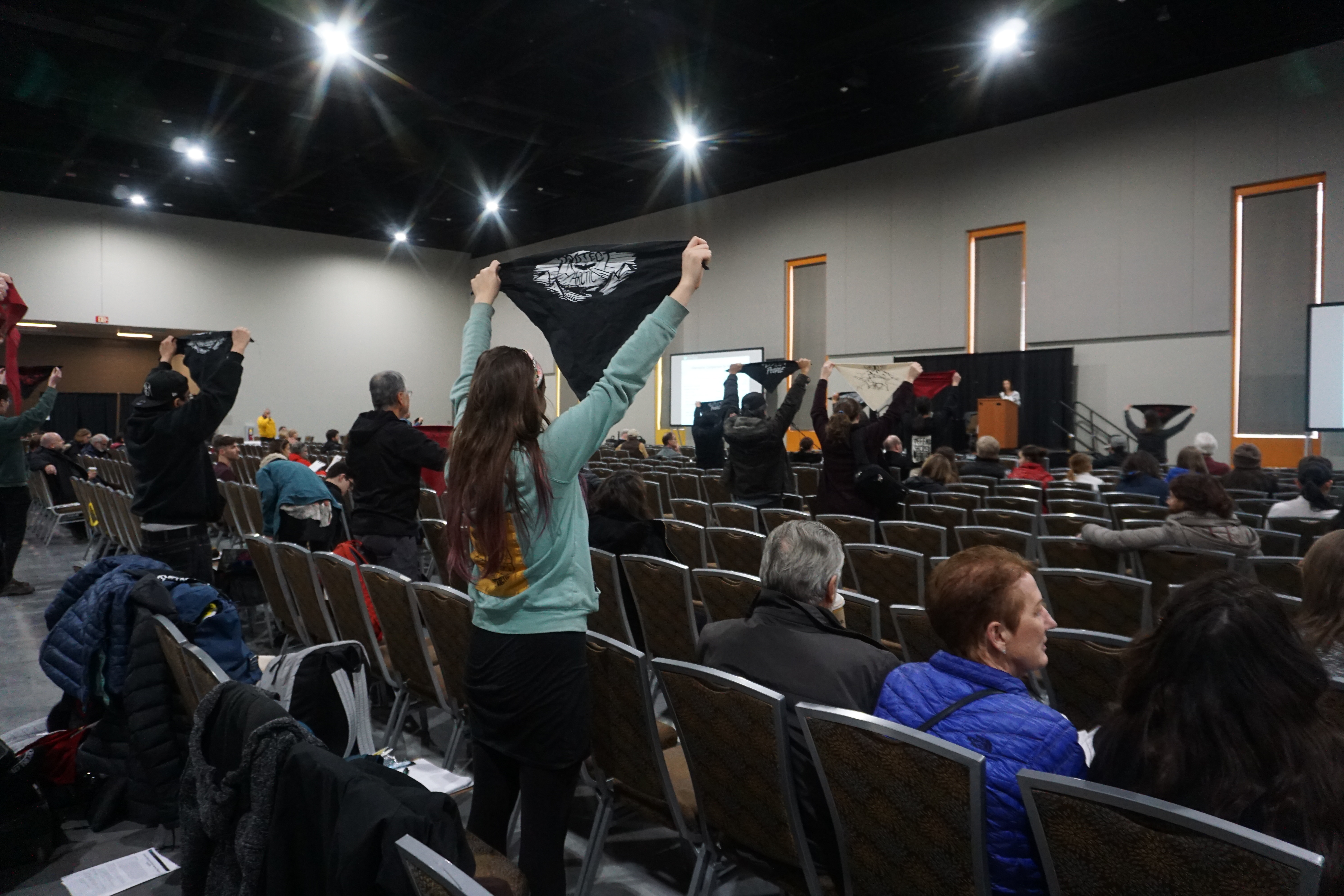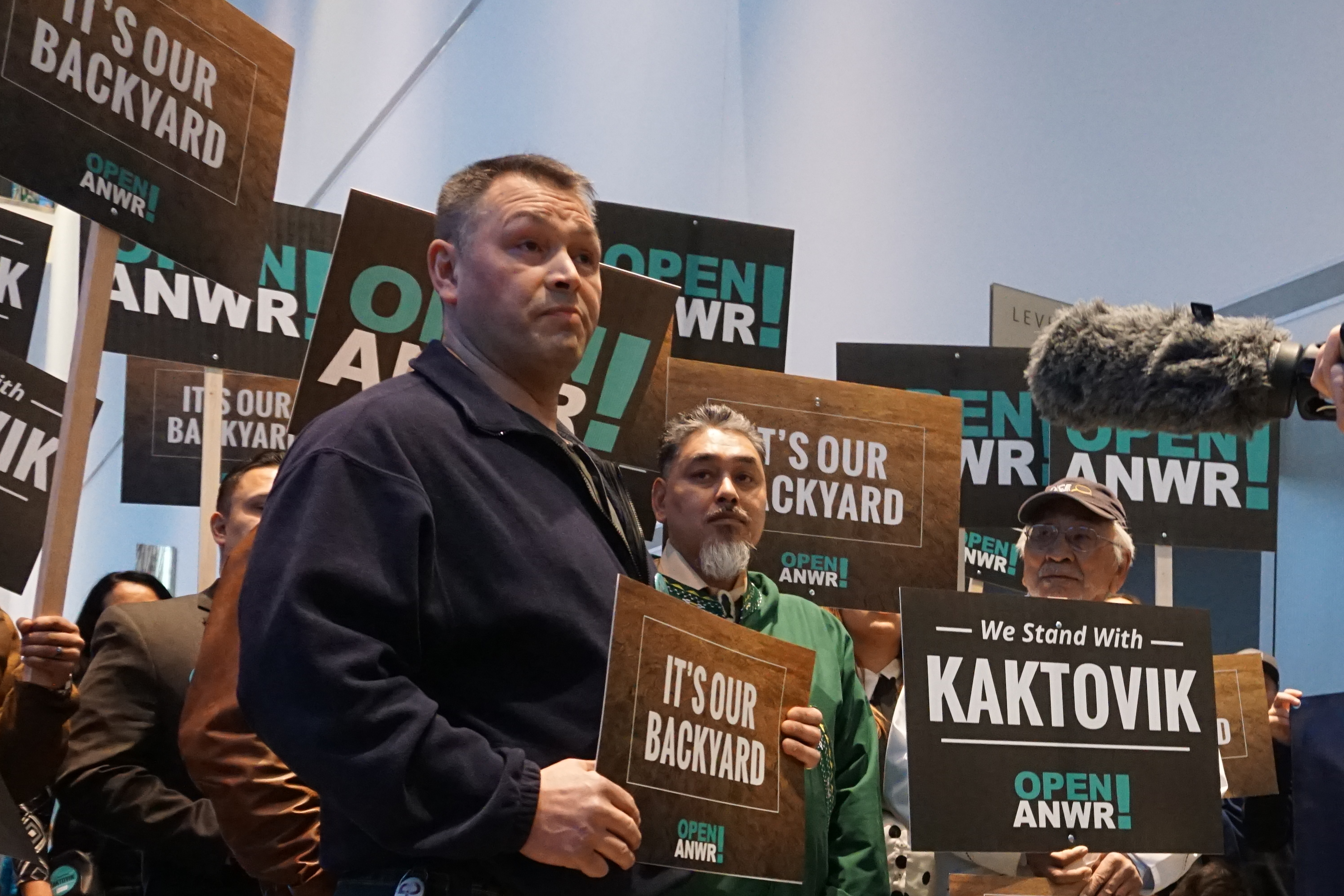The Trump administration says it’s sticking to plans for an Arctic refuge oil lease sale by year’s end
Critics say the process has been too rushed. Meanwhile, Congressional representatives on Monday introduced a bill to take ANWR leasing out of the 2017 tax bill.

The Trump administration is on track to sell oil leases in the Arctic National Wildlife Refuge this year, cracking open an area that for decades has been closed to development, a top official with the Department of the Interior said on Monday.
Joe Balash, the Interior Department’s assistant secretary for land and minerals management, said the department plans to complete its environmental review, reach a record of decision and open up the first round of bidding before the end of 2019.
“Can all of that happen this year? We think so,” he told reporters during a public meeting in Anchorage on proposed ANWR leasing. The meeting was the seventh of eight scheduled to collect public input on a draft environmental impact statement released in December by the Bureau of Land Management.
Balash said Interior officials will “take as long as is necessary to do a robust job and come out with a solid product” that is good for the nation and that minimizes impacts to the region’s Porcupine caribou herd, a point of contention in the drilling debate.
“We think we’ll be done with the EIS sometime in the third quarter this year, but, you know, we thought we would be further along than we are now,” he said.
Critics of the oil development plan argue that the Interior Department is rushing the process.
Among the critics was Andy Moderow, Alaska director of the Alaska Wilderness League. With the eight public meetings scheduled so quickly, giving some Alaskans only a week’s notice or even less than that, “the mad rush continues,” he said in his testimony at Monday’s meeting.
But Balash defended the pace of oil-leasing work. That quick pace, he said, “is a function, I believe, of quality and prioritization.”
“We’ve got a number of individuals whose only job for the last 13 months has been to work on this program,” he said. ““We’re putting in the work that you would normally see take multiple years to accumulate.”
At least one element of ANWR oil development has been delayed.
A controversial proposal to shoot three-dimensional seismic surveys across the entire coastal plain cannot be carried out this winter, Balash and other Interior officials said. The seismic program, as proposed by SAExploration and two partner Alaska Native corporations, would have started as early as last December. But the group has not yet obtained a U.S. Fish and Wildlife Service permit it needs to operate in polar bear habitat, and
“We’ve reached a point in the calendar where a robust program isn’t possible,” Balash told reporters.
Interior spokesman Alex Hinson said on Friday that SAExploration will rewrite its application and seek to start seismic surveys next winter. “We can confirm that seismic surveys will not take place until December 2019,” he said in an email. “The status of the application is still pending. The applicant has asked us to amend both permits to reflect a December 2019 start date, and it should be coming out in the coming weeks.”
The proposed seismic survey would send heavy vehicles known as “thumper trucks” across the tundra to shoot loud sound waves into the ground. Those sound waves are intended to help map out geologic structures and provide a better understanding of potential hydrocarbon resources. But the prospect of so many vehicles creating so much noise in the refuge coastal plain raises concerns about denning polar bears. As sea ice diminishes, more maternal polar bears have settled on the coastal plain to build the dens they use to give birth to and nurse their cubs.
In his remarks to reporters on Monday, Balash said the delay in seismic testing should not affect the leasing schedule.
“Seismic is not a magic map to know exactly where the oil is and how much is there, and is it in good rock,” he said. Some companies may be disappointed to lack seismic information, he said. “But it’s certainly not a regulatory requirement. You don’t have to have seismic to hold a lease sale. You don’t have to have seismic to hold a successful lease sale,” he said.
One thing that is certain, Balash said: There will be a lease sale. The tax overhaul passed by Congress in December of 2017 requires it, he noted. “Congress directed the secretary, the Department of the Interior, to hold lease sales,” he said. “So a no-action alternative would fly in the face of what Congress told us to do.”
That idea excited many of the people attending the Anchorage meeting.
“Responsible oil and gas development in a small fraction of the coastal plain proposed for leasing will help ensure American energy security for decades and allow Alaska and our nation as a whole to realize the benefits that come from expanding energy production,” Marleanna Hall, executive director of the Resource Development Council for Alaska, said in her testimony.
A group of sign-waving drilling supporters held a rally just outside the meeting room. Several were from Kaktovik, the village closest to the proposed development site and a potential economic beneficiary of oil drilling there.
But others at the meeting testified that ANWR oil drilling would be disastrous for Alaska Natives. Opponents of leasing held signs or wore clothing that urged officials to “Defend the Sacred, Listen to the People, Protect the Arctic.”
One of the opponents was Sarah Siqiniq Maupin, an Inupiat and University of Alaska Fairbanks student from Utqiagvik.
“As people come up here and testify about how they need jobs and how they think it’s economically beneficial to drill in the Arctic refuge, they’re ignoring the human population that is on the North Slope and in other places around the world that are being devastated by this development. When all the water is gone and all the clean air, what are we going to do with green paper?” Maupin said. “Scientists and traditional ecological knowledge holders agree: Climate change is devastating our world, and what we do in the Arctic will affect everyone.”
Meanwhile on Monday, three members so the U.S. House — Democrat Jared Huffman and Alan Lowenthal, both Democrats from California, and Republican Brian Fitzpatrick of Pennsylvania — introduced a bill that would amend the 2017 tax bill to strip the ANWR leasing provision from it. Fitzpatrick was one of seven Republican House members who, in a December letter to then-Interior Secretary Ryan Zinke, criticized the Trump administration’s move to lease ANWR as too hasty and the SAExploration seismic plan as environmentally risky.


